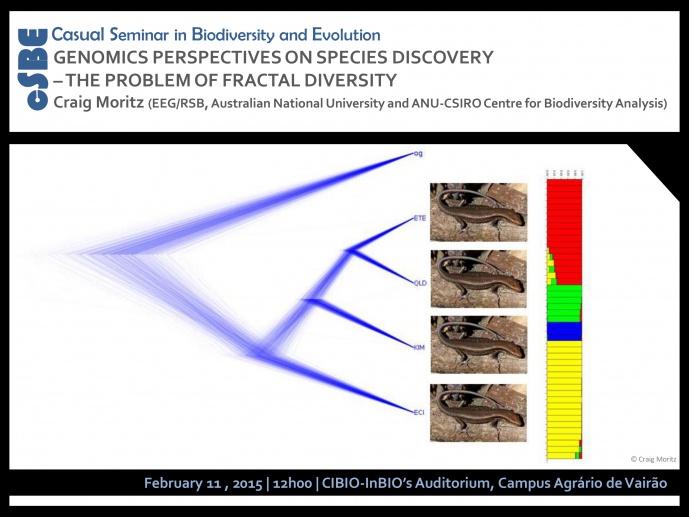GENOMICS PERSPECTIVES ON SPECIES DISCOVERY – THE PROBLEM OF FRACTAL DIVERSITY

CASUAL SEMINAR IN BIODIVERSITY AND EVOLUTION

Widespread application of genomic-scale data to low-dispersal taxa is revealing often fractal structuring of long isolated lineages and populations within them. This, together with evidence of reproductive isolation among morphologically cryptic lineages, poses interesting challenges in systematics, speciation biology and applications of biodiversity knowledge in conservation.
Craig did his undergraduate at University of Melbourne (1976-1979), where he developed his passion for evolutionary biology. For his PhD at ANU (1980-1985), he studied chromosome evolution and speciation in arid zone lizards, along the way discovering all-female reproduction in Heteronotia binoei. Then he moved across the Pacific Ocean for a postdoc at University of Michigan (1985-1988; mitochondrial DNA and evolution of parthenogenesis), before returning to a faculty position at The University of Queensland (1988-2000), including a stint as Head of School. From 2000-2012 he was Director of the Museum of Vertebrate Zoology at UC Berkeley. From mid 2012 he happily settled at EEG/RSB as a Professor and Arc Laureate Fellow. Craig is also the Director of the joint ANU-CSIRO Centre for Biodiversity Analysis. Craig is a member of the project "GenePlan - Integrating Evolutionary Processes and Systematic Conservation Planning", hosted by CIBIO-InBIO.
[Host: Sílvia Carvalho, Biodiversity of Deserts and Arid Regions]
Image credits: Craig Moritz